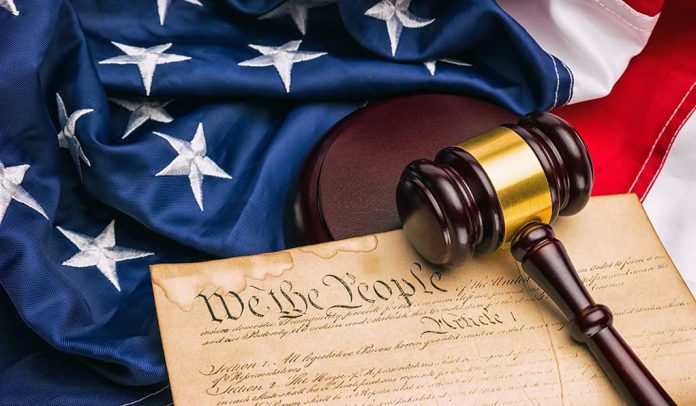
Vice President Kamala Harris ignited a firestorm of controversy with her recent remarks on the Bill of Rights, exposing a potentially alarming gap in her constitutional knowledge.
At a Glance
- Harris’ comments on the Bill of Rights omitted key amendments, sparking debate
- The incident highlights the importance of leaders’ constitutional understanding
- Harris made history as the first black and Asian-American woman on a major party’s presidential ticket
- Her statements have been scrutinized for accuracy and context
- The debate underscores the need for precise constitutional knowledge in political discourse
Harris’ Controversial Remarks Spark Constitutional Debate
Vice President Kamala Harris, the first black and Asian-American woman to lead a major party’s presidential ticket, has found herself at the center of a heated debate following her recent comments on the Bill of Rights. Her remarks, which notably omitted several key amendments, have raised serious questions about the depth of constitutional knowledge expected from our nation’s leaders that Harris failed to demonstrate.
This incident has ignited a firestorm of criticism from conservatives who argue that a comprehensive understanding of the Constitution should be a fundamental requirement for those in positions of power. “Imagine the Constitution of the United States, which guarantees the Fourth Amendment against unreasonable search and seizure by a government on you, the Fifth Amendment, the Sixth Amendment,” Harris said at Univision town hall in Las Vegas. She notably left out any mention of the First and Second Amendments.
The oversight in Harris’ statements has not only fueled ongoing debates about how leaders interpret and prioritize different amendments but has also highlighted the delicate balance between political rhetoric and the historical context of our nation’s founding documents.
The Importance of Constitutional Literacy in Leadership
The controversy surrounding Harris’ remarks underscores a critical issue in contemporary American politics: the expectation that our leaders possess a thorough and nuanced understanding of the Constitution. This incident serves as a stark reminder of the potential consequences when those in power demonstrate a less-than-comprehensive grasp of these foundational texts.
Harris’ Record of Misleading Statements
The controversy over Harris’ Bill of Rights comments is not an isolated incident. According to an NPR fact-check, the Vice President made 12 misleading or lacking-in-context statements during her speech at the Democratic National Convention. These inaccuracies ranged from claims about Trump’s intentions to jail journalists and political opponents to assertions about his stance on Social Security and Medicare.
This points to a pattern of exaggeration and misrepresentation in Harris’ political rhetoric. This ongoing exchange of accusations and counter-accusations underscores the need for voters to critically evaluate the statements of all political figures, regardless of party affiliation.
The Broader Implications for American Democracy
The controversy surrounding Harris’ remarks on the Bill of Rights goes beyond mere political point-scoring. It raises fundamental questions about the quality of leadership and the state of civic education in America. If our highest-ranking officials struggle to accurately represent the foundational principles of our government, how can we expect the general public to be well-informed and engaged citizens?
This incident should serve as a wake-up call for all Americans. It highlights the critical need for a renewed focus on civic education, not just in our schools but throughout our society. Only by fostering a deep and widespread understanding of our constitutional rights and responsibilities can we hope to preserve and strengthen our democratic institutions for future generations.






















